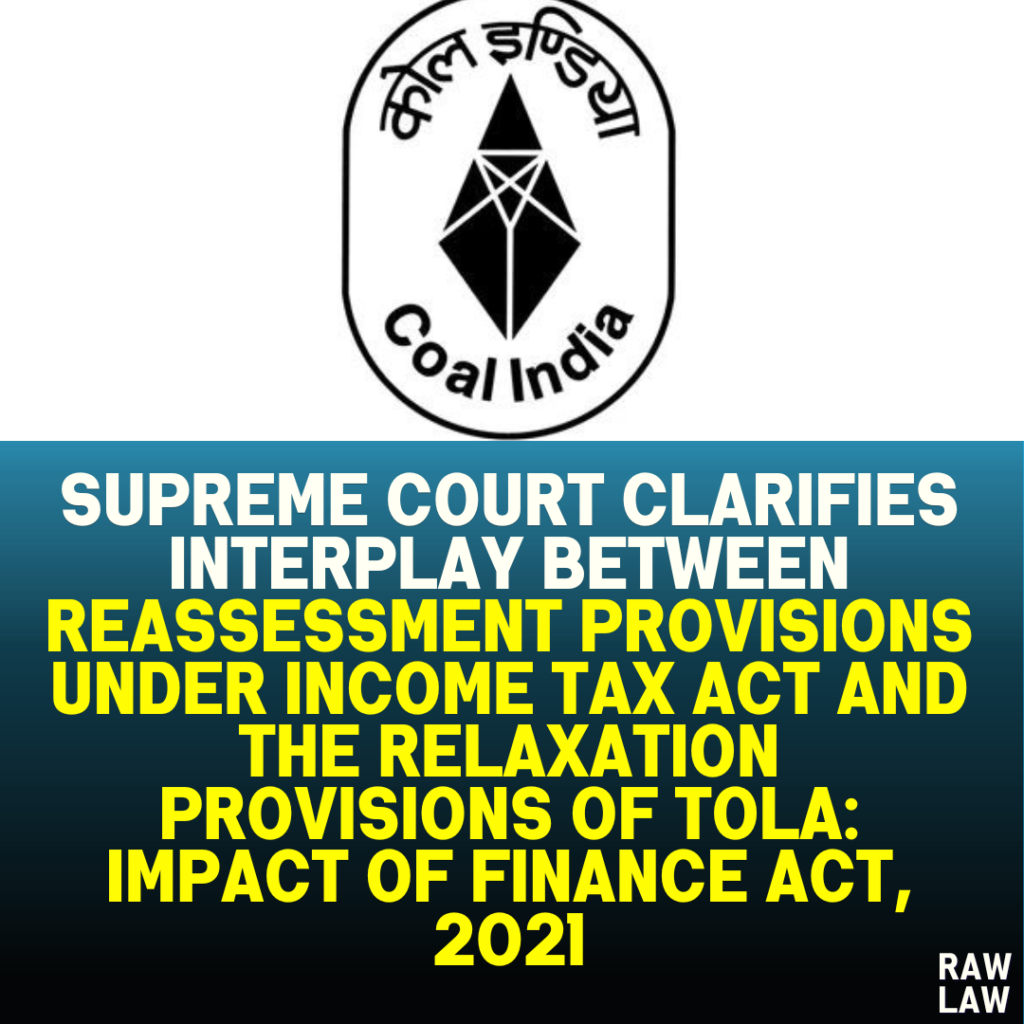Court’s Decision
The Supreme Court set aside Bharat Coking Coal Limited’s (BCCL) decision rejecting the technical bid of the appellant and declared the respondent company as a successful bidder despite its non-compliance with the mandatory requirements under Clause 10 of the Notice Inviting Tender (NIT). The Court deemed BCCL’s actions as arbitrary, discriminatory, and violative of Article 14 of the Constitution of India. The Court directed BCCL to initiate a fresh tender process for the project in question.
Facts
The dispute centers around a tender floated by BCCL on 16.08.2023 for reopening, salvaging, rehabilitating, developing, and operating the Amalgamated East Bhuggatdih Simlabahal Coal Mine. The appellant company authorized its director via a Power of Attorney executed on 07.11.2023 and submitted its bid on 29.11.2023. The technical bids were opened on 04.12.2023, and BCCL rejected the appellant’s bid on 06.05.2024 for alleged non-compliance with Clause 10 of the NIT, which required proper documentation and authorization. The financial bids were opened on 07.05.2024, and the respondent company was declared the successful bidder.
The appellant challenged the decision, arguing that the rejection was arbitrary and discriminatory, especially when the respondent company was allowed to submit additional documents after the bid submission date, which was not permissible as per the NIT.
Issues
- Whether BCCL was justified in rejecting the technical bid of the appellant while accepting the technical bid of the respondent company, which also failed to comply with Clause 10 of the NIT?
- Whether the decision-making process of BCCL was arbitrary, discriminatory, and in violation of Article 14 of the Constitution?
Petitioner’s Arguments
- The rejection of the appellant’s technical bid was arbitrary and discriminatory, as the respondent company’s technical bid was accepted despite its failure to meet the mandatory requirements.
- The bid documents were submitted within the stipulated time, and the appellant had complied with all the conditions of the NIT.
- The appellant’s bid was more competitive and beneficial (valued at Rs. 700 crores approx.) compared to the respondent company’s bid.
- Invoking the Public Trust Doctrine, the appellant contended that BCCL’s decision was not only unreasonable but also detrimental to public interest.
Respondent’s Arguments
- BCCL defended its decision by stating that the appellant’s Power of Attorney was notarized after the date of bid signing, which rendered the bid non-compliant.
- It was argued that the respondent company’s omission of audited balance sheets was a minor shortfall that was later rectified through permissible clarifications.
- The respondent highlighted that judicial review in tender matters should be limited, as the project was of national importance and public interest.
Analysis of the Law
The Court examined the scope of judicial review in tender matters and reiterated that while the State has freedom in contract decisions, such decisions must be fair, reasonable, and free from arbitrariness. The Court emphasized that public authorities must ensure transparency and equality in the bidding process. The reliance was placed on established principles laid down in Sterling Computers Ltd. vs. M & N Publications Ltd., Tata Cellular vs. Union of India, and ABL International Ltd. vs. Export Credit Guarantee Corporation of India Ltd.
Precedent Analysis
The Court referenced Sterling Computers Limited vs. M & N Publications Limited and Tata Cellular vs. Union of India, reiterating that the decision-making process must pass the Wednesbury test of reasonableness and must not be tainted by arbitrariness or malafides.
Court’s Reasoning
The Court found that BCCL acted arbitrarily in rejecting the appellant’s bid while accepting a non-compliant bid from the respondent company. It observed that BCCL could not selectively apply the rules of the NIT and allow rectification for one bidder while rejecting another on technical grounds. There was no provision in the NIT that required the Power of Attorney to be notarized before signing the bid documents.
Conclusion
The Court concluded that BCCL’s decision violated the principle of fairness and transparency expected from public authorities. The rejection of the appellant’s bid was unjustifiable, and the acceptance of the respondent company’s bid was equally flawed. Consequently, the Supreme Court set aside the impugned decision and directed BCCL to re-initiate the tender process.
Implications
This judgment reinforces the principle that public authorities must act transparently and fairly in tender processes, and any deviation from established norms must be applied uniformly to all bidders. It also underscores the limited but crucial scope of judicial intervention in ensuring that public procurement processes are free from arbitrariness and favoritism. The ruling could serve as a precedent in future tender disputes, especially concerning procedural fairness and compliance with tender terms.



